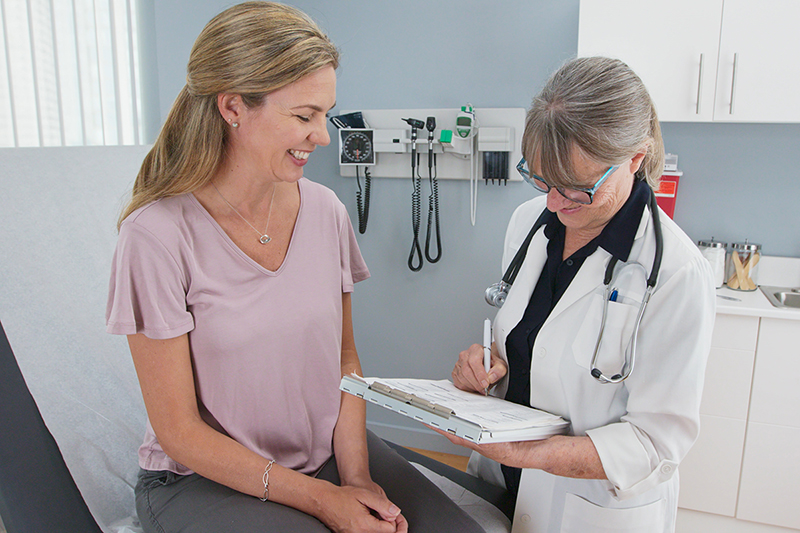The Right Care When You Need It
Have a child with an earache or a sudden fever? We can help you decide what type of care is best.

When a loved one suddenly becomes ill or is injured, you want to get care right away. Some problems should send you to the emergency room, but in many cases, an urgent care facility or after-hours healthcare provider might be a better choice to save both time and money.
Here are a few ways you can get care quickly:
Call the nurse line
Do you have a sick child at 3:00 a.m.? We’re still awake. Call our nurse line to speak to a registered nurse who will listen to your concerns, answer any medical questions you may have, and help you decide what course of action to take.
Intermountain Health Answers is available at 844-501-6600.
Related: What Is Preventive Care?
Speak to a healthcare provider online with Connect Care
Web-based video apps, like Intermountain Connect Care®, make it easy to talk to a provider about your nonemergency issue.
You can speak to a provider with Connect Care using your smart phone, tablet, or computer. They can even prescribe certain medications and will call it in to your preferred pharmacy. Connect Care is covered by most Select Health health plans.
Connect Care can help you with minor ailments such as:
- Stuffy and runny nose
- Sore throat
- Cough
- Allergies
- Eye infections
Please note: Connect Care isn't available in all service areas.
Related: See a Provider Online Using Connect Care
Visit an urgent care facility
Urgent care facilities and after-hours providers typically offer a professional staff of licensed providers and registered nurses who can treat conditions that are not life-threatening but require medical attention within 24 hours.
Examples of conditions treated at urgent care centers often include:
- Minor burns or injuries
- Broken bones needing X-rays
- Sprains and strains
- Earaches
- Minor allergic reactions
- Rash or other skin irritations
- Mild asthma attacks
- Animal and insect bites
- Minor cuts and lacerations
When to call 911
Sometimes it’s hard to know if you should call 911. According to the American College of Emergency Physicians, you should visit the ER if you have any of these warning signs:
- Chest pain or pressure
- Uncontrolled bleeding
- Sudden or severe pain
- Coughing blood or vomiting blood
- Difficulty breathing or shortness of breath
- Sudden dizziness, weakness, or changes in vision
- Severe or persistent vomiting or diarrhea
- Changes in mental status, such as confusion
If you are unsure of whether you are having a life-threatening medical emergency, go to the ER.
Still needing help? Our Member Advocates can assist you with scheduling an appointment, finding the closest facility or doctor, and in understanding your benefits. Call at 800-515-2220 weekdays, from 7:00 a.m. to 8:00 p.m., and Saturdays, from 9:00 a.m. to 2:00 p.m.




